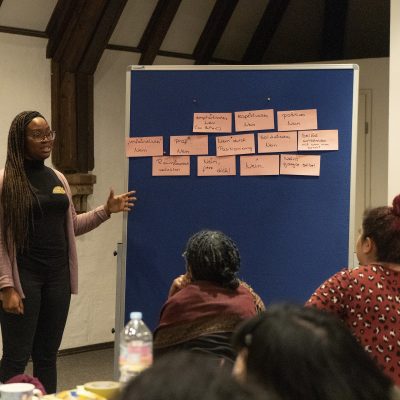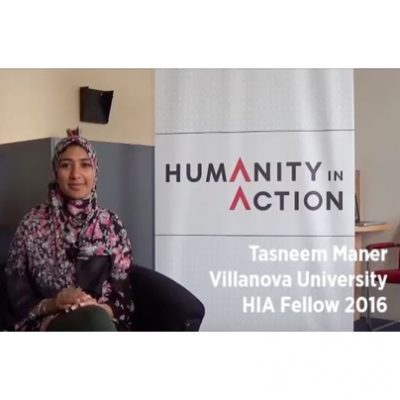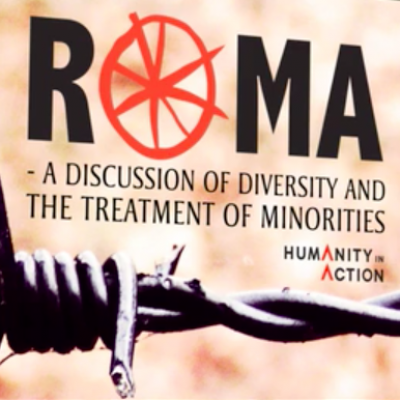Article
Senior Fellow Larissa Weiss defends the view that, in her native Germany, racism is a structural and institutional system that is built to benefit white people. She conceptualizes racism after Noah Sow, who describes it as white supremacy and underlines that racism is consequently bound to white privilege.
Larissa believes that a lack of awareness of the workings of these prejudiced systems of power only leads to an invisibility of racist incidents. In reference to Germany, this lack of knowledge consequently leads to the dangerous assumption that such events are isolated instead of belonging to a greater scheme of structural racial tensions.
During her Humanity in Action Fellowship in Warsaw, Larissa was shaken by the realization of her own position in these systems, being a “privileged white, well-abled, and cisgender student” herself. She had read books about these topics prior to the Fellowship, but the workshops she was part of during this time made her comprehend what her role was. This inspired her to start a conversation in Germany about white privilege and what this concept really means beyond the scope of politics with reference to historical developments.
Larissa’s project embodies what she perceives to be a much-needed societal shift in narratives in regards to old, yet subtle systems of segregation and sectarianism.
Out of this puzzle, her Action Project– HerAbout— was born. The project took the shape of a blog, with the German public as the target audience, touching upon structural and systemic discrimination and biases in German society. The aim was to expose the workings of racism that go beyond politics, so that society can attempt to counteract and eliminate them. Considering her own privileged position in this, it was important to change the perspective and try to work only with studies and books written by BIPOC (black, indigenous, and people of color). Through her literature selection, Larissa intended not to take up too much room as a white person in this conversation, but rather to encourage other white people to also reflect upon their social position within society and to question their role in defining society’s master narratives.
Larissa believes that lack of awareness of the workings of these prejudiced systems of power only leads to an invisibility of racist incidents.
The blog mainly introduces readers to the struggles of the BIPOC communities. A sensitive and crucial aspect of this for Larissa was to acknowledge she was not at the same level of the conversation as those who have shaped it, but to point to texts written by member of BIPOC communities and give suggestions, while being aware of her privileged role as a white person within the production of this knowledge. For the most part, Larissa’s project consists of reading recommendations authored by BIPOC, as well as reflections borrowing from them. One type of discrimination she considers to be pervasive in Germany is Islamophobia, which she discusses in-depth in her blog.
Larissa’s project intends to contribute to shifting narratives in regards to old, yet subtle systems of segregation and sectarianism. She recognizes that this is no easy task, given that, as a privileged person wanting to become aware of these systems, one may face ugly and bitter truths about one’s own position and role in structural injustice. Lastly, she says “I cannot stress enough how important it is to take a decentralized position as a privileged person trying to raise awareness around these issues in one’s own community.”
“You cannot change any society unless you take responsibility for it, unless you see yourself as belonging to it and responsible for changing it.“ – Grace Lee Boggs




